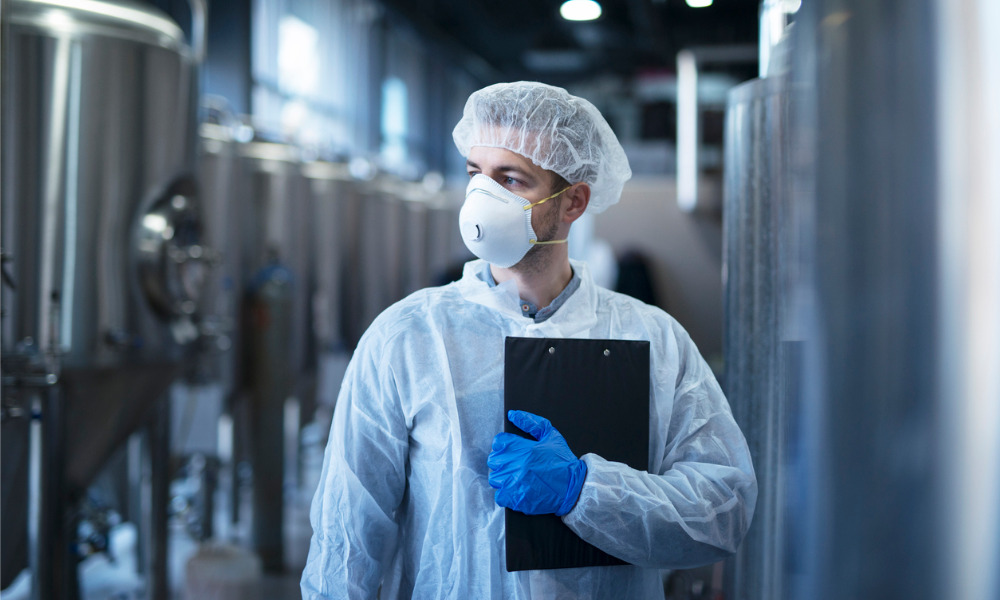Five key things to know about food safety amid the current pandemic

With this current pandemic, questions around manufacturing and food safety are becoming a bigger concern for those in the production and distribution chain, as well as consumers. Here are five of the biggest questions pertaining to food safety, and answers that may help.
1. Is the agri-food industry taking measures to make sure that the food they produce or distribute is not contaminated by the virus?
Strict hygiene rules already govern the production of food and their implementation is subject to official controls which all food businesses must apply.
The hygiene controls to be implemented by food business operators are designed to prevent the contamination of the food by any pathogens, and will therefore also aim at preventing contamination of the food by the virus responsible for COVID-19.
Regular training actions in food businesses on all these requirements are mandatory so that people working in the food industry know how to work hygienically.
Among the good hygiene practices required at all stages of food production, of particular relevance are cleaning and, where appropriate, disinfection of food producing facilities and equipment between production lots; avoidance of cross-contamination between categories of food and food at different stages of the process (e.g. raw versus cooked food); personal hygiene such as washing and disinfecting hands; wearing gloves and masks where required; use of dedicated hygienic clothes and shoes; or staying at home, away from work whenever feeling ill.
Furthermore, in the present context, food businesses should limit their external contacts to the absolute necessary, for example with suppliers or trucks while keeping distance from the drivers.
2. The lockdown may limit controls on the application of hygiene in food businesses. Does this undermine the safety of food in general?
Even though official controls are part of a safe food chain, the current limitations (including the possible risk-based postponement of some official control activities) are not considered to affect the safety of food, which first and foremost relies on the commitment of all actors of the food chain, from farm to fork, with the primary responsibility lying with food business operators.
Food safety is primarily achieved through preventive measures (good hygiene practices). Food business operators have to demonstrate that these preventive measures are always in place during food production and that they are effective by means of checks and testing on their production process and food (so-called own-controls).
This is in turn inspected by the food safety authorities. Even where the lockdown may affect the modalities of official controls, it does not affect the safety of food produced and to limit the spread of COVID-19, under appropriate safeguards, so that food safety cannot be not compromised.
3. What happens if a food business employee is infected with COVID-19?
Specific protocols have been established within the food processing industry to safeguard the health of employees. These measures come in addition to usual food hygiene and workers’ safety practices, and they adapt to the possibilities on the ground.
Such measures include social distancing while at work, plexi-glass when distance cannot be maintained, no contact between truck drivers and the food facility, more hand sanitizers at disposal, working in staggered shifts to ensure no more workers than strictly necessary in the facility, or where possible working from home.
Under the special recommendations for COVID-19 now in place, any person presenting symptoms indicative of COVID-19 is requested to stay at home, to prevent the spread of the virus.
Even in the case where people might be infected while not (yet) ill (asymptomatic carriers of the virus), the existing legislation minimizes risk of virus particles coming into contact with foodstuffs, since every person working in a food-handling area must maintain a high degree of personal hygiene including wearing suitable, clean and, where necessary, protective clothing and constantly apply good hygiene practices (regular handwashing, no unhygienic behaviors allowed such as sneezing or coughing when producing or handling food, etc.).
There is every reason to believe that existing sanitation measures are as effective on COVID-19 as on other microbiological risks. Furthermore, food businesses should perform additional sanitation measures when appropriate, based on risk, all the more in the case if an employee tests positive to the virus.
These measures, combined with the fact that food is not known to be a source of transmission, provide assurance on the safety of food production.
4. There might be shortages of hand disinfectants due to distribution problems. How can this be addressed in a food business?
In EU like in Canada, food safety legislation requires all food business operators to ensure that employees take adequate hygienic measures. This includes frequent washing of hands using soap. Where additional disinfection is necessary, this must be used as directed.
In the case of shortages, local food safety authorities will consider such issues case-by-case and may help businesses find alternative safe solutions so that food safety remains ensured. These could include using alternative products or ensuring more frequent washing of hands with soap.
5. As a food business operator, how do I protect my employees from getting infected?
Food business operators must train their employees on how to properly use personal protective equipment (PPE) and remind them on how important it is to follow instructions on personal hygiene and social distancing during breaks at work.






